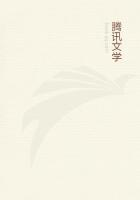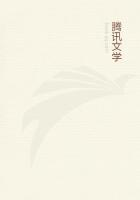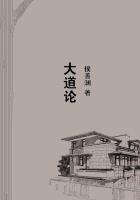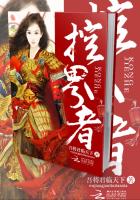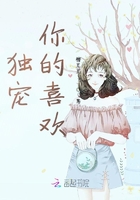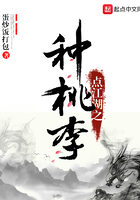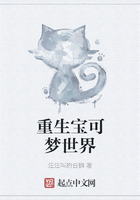At any rate, the organization of activity for definite purposes starts. The little investigator is apparently obsessed with the idea that everything it can reach, including its fingers and toes, are good to eat, for everything reached is at once brought to the mouth, the primitive curiosity thus being gustatory. In this research the baby finds that some few things are pleasant, many indifferent and quite a few disgusting and even painful, which may remain as a result not far different from that obtained by investigation in later years. The desire for pleasant things commences to guide its activities. Every new thing is at once an object for investigation, perhaps because its possibilities for pleasure are unknown. That curiosity may have some such origin is at least a plausible statement. At any rate, desire of a definite type steps in to organize the mere desire for activity; and impulse is controlled by purpose.
The child learns to creep, and the delight in progression lies in the fact that far more things are accessible for investigation, for rearrangement, for tasting. It is no accident that we speak of our "tastes" that we say, "I want to taste of experience."
That is exactly what the child creeping on the floor seeks,--to taste of experience and to anticipate, to realize, to learn. Out of the desire for activity grows a desire for experience born of the pleasure of excitement that we spoke of previously. This desire for experience becomes built up into strange forms under teaching and through the results of experience. It is very strong in some who become explorers, roues, vagabonds, scientists as a result, and it is very weak in others who stay at home and seek only the safe and limited experience. You see two children in one room,--and one sits in the middle of the floor, perhaps playing with a toy or looking around, and the other has investigated the stove and found it hotter than he supposed, has been under the table and bumped his head, has found an unusually sweet white lump which in later life he will call sugar. The good child is often without sufficient curiosity to be bad, whereas the bad child may be an overzealous seeker of experience.
So our child reaching out for things develops ideas of cause, effect and power, commences to have an idea of himself as a cause and likes the feeling of power. As he learns to walk, the world widens, his sense of power grows, and his feeling of personality increases. Meanwhile another side of his nature has been developing and one fully as important.
The persons in his world have become quite individual; mother is now not alone, for father is recognized with pleasure as one who likewise is desirable. He carries one on his shoulder so that a pleasurable excitement results; he plays with one, holds out strings and toys and other instruments for the obtaining of experience. Usually both of these great personages are friendly, their faces wear a smile or a tender look, and our little one is so organized that smiles and tender looks awaken comfortable feelings and he smiles in return. The smile is perhaps the first great message one human being sends to another; it says, "See, I am friendly, I wish you well." Later on in the history of the child, he will learn much about smiles of other kinds, but at this stage they are all pleasant. Though his parents are usually friendly and give, now and then they deprive, and they look different; they say, "No, no!" This "no, no" is social inhibition, it is backed up by the power of deprivation, punishment, disapproval; it has its power in a something in our nature that gives society its power over us. From now there steps in a factor in the development of character of which we have already spoken, a group of desires that have their source in the emotional response of the child to the parent, in the emotional response of an individual to his group. Out of the social pressure arises the desire to please, to win approval, to get justification, and these struggle in the mind of the child with other desires.
We said the child seeks experience,--but not only on his own initiative. The father stands against the wall, perhaps with one foot crossing the other. Soon he feels a pressure and looks down; there is the little one standing in his imitation of the same position. Imitation, in my belief, is secondary to a desire for experience. The child does not imitate everything; he is equipped to notice only ****** things, and these he imitates. Why? The desire to experience what others are experiencing is a basic desire; it expresses both a feeling of fellowship and a competitive feeling. We do not feel a strong tendency to imitate those we dislike or despise, or do not respect, we tend to imitate those we love and respect, those for whom we have a fellow feeling. Part of the fellow feeling is an impulse to imitate and to receive in a positive way the suggestion offered by their conduct and manners.
Analogous to imitation, and part of the social instinct, is a credulity, a willingness to accept as if personally experienced things stated. Part of the seeking of experience is the asking of questions, because the mind seeks a cause for every effect, a something to work from. Indeed, one of the main mental activities lies in the explaining of things; an unrest is felt in the presence of the "not understood" which is not stilled until the unknown is referred back to a thing understood or accepted without question. The child finds himself in a world with laid-down beliefs and with explanations of one kind or another for everything. His group differs from other groups in its explanations and beliefs; his family even may be peculiar in these matters. He asks, he is answered and enjoined to believe.

